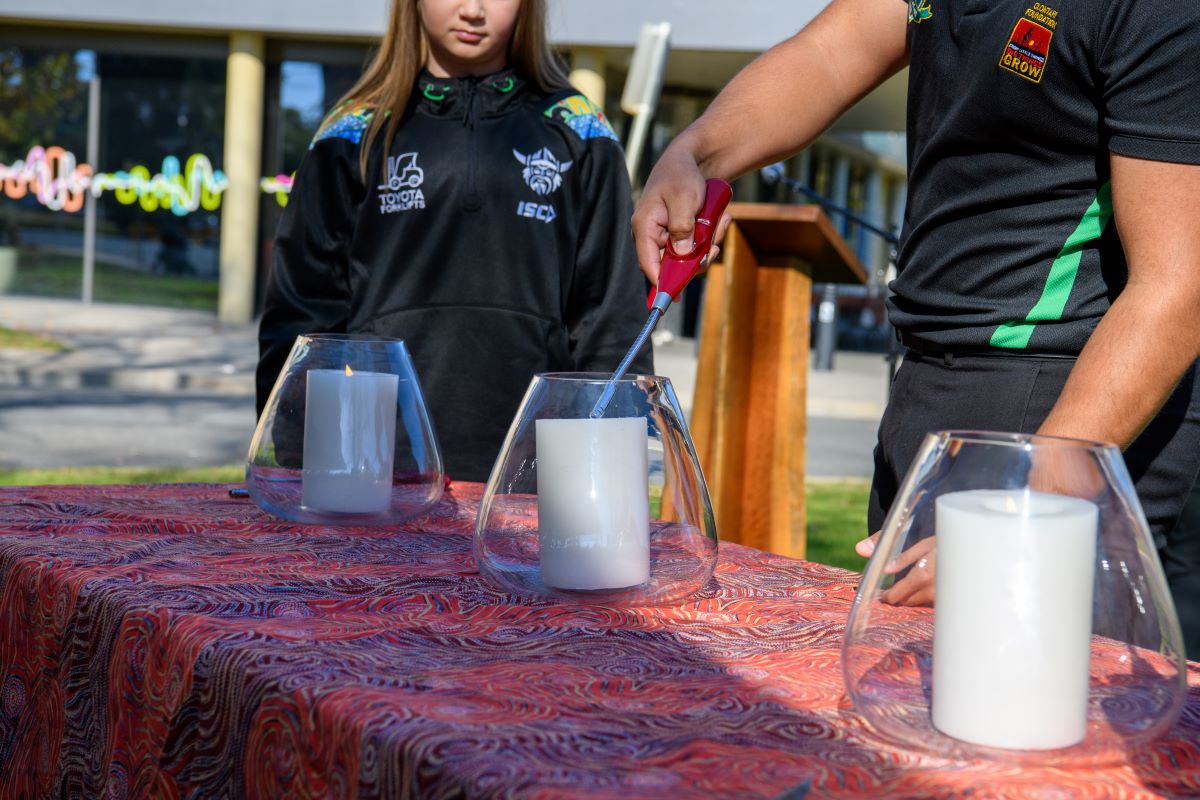Wiradjuri/Wiradyuri and First Nations Elders, young people and community members are invited to gather at the Sorry Rock in the Wollundry Precinct on Monday 26 May 2025 to commemorate National Sorry Day.
Council's Aboriginal Community Development Officer Michaella Alexander, is encouraging the wider community to reflect on the significance of this national date.
"It's been 28 years since the first National Sorry Day was held, marking the anniversary of the 1997 Bringing Them Home report being tabled in Federal Parliament - a national inquiry into the forced removal of Aboriginal and Torres Strait Islander children from their families," Ms Alexander said.
The Sorry Day Rock, located in the Wollundry Lagoon precinct, was unveiled in 2018 to honour the Stolen Generations, including children sent to institutions such as the Cootamundra Girls Home and Kinchela Boys Home, where they were trained in domestic and farm labour.

Often confused with National Apology Day-held on 13 February to mark the former Prime Minister Kevin Rudd's 2008 apology-Sorry Day specifically recognises the ongoing impacts of the forced removal of Aboriginal and Torres Strait Islander children from their families.
"National Apology Day and Sorry Day are distinct but connected moments in Australia's reconciliation journey. Sorry Day offers a chance to acknowledge the past with sincerity and empathy, paving the way toward healing," Ms Alexander said.
"As guided by local Elders, this year's event will focus on our young people, with children and youth presenting poems, songs, and dance."
The commemorative ceremony will take place at 10am on Monday 26 May at the Sorry Rock, Wollundry Lagoon, near the Wagga Wagga Civic Theatre (Burns Way).
Light refreshments will be served after the official proceedings. Bookings not required.
National Sorry Day is followed by National Reconciliation Week 2025, running from Tuesday 27 May to Tuesday 3 June. It is a time for all Australians to learn about our shared histories, cultures, and achievements, and to explore how we can contribute to reconciliation.






